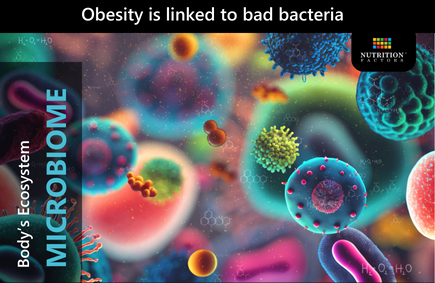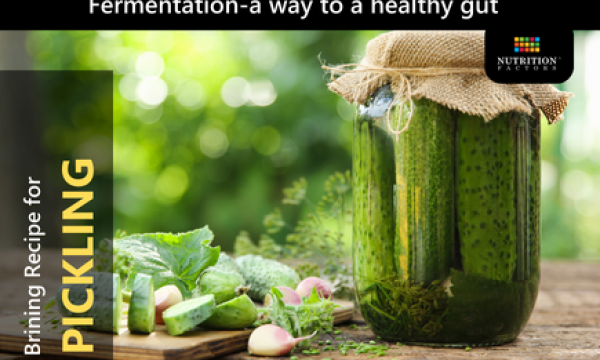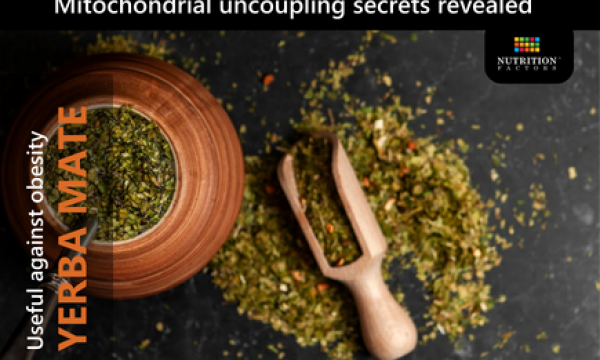In the intricate world within your gut resides an ecosystem teeming with billions of health-promoting and essential bacteria. This inner garden, the microbiome, is a critical player in immunity, weight control, and overall well-being. Each person possesses a unique microbial fingerprint, shaping the world within.
This microbial ecosystem doesn’t operate in isolation; it communicates with neighboring bodily systems, creating a network that profoundly influences weight, behavior, and overall health. However, it’s not all harmonious—certain strains of harmful bacteria can disrupt this delicate balance, wreaking havoc on your health and potentially leading to weight gain.
Certain strains of microbes can either promote health or terrorize the gut and cause poor health. Let’s briefly examine some bacterial strains that can affect weight loss, weight gain, and overall health. Each microbe plays a specific role in well-being.
Good Gut Bacteria
Your gut is a bustling ecosystem, teeming with beneficial bacteria that contribute to your health in myriad ways. Let’s spotlight some of these good bacteria:
Lactobacillus Strains:
Lactobacillus gasseri and Lactobacillus rhamnosus have been studied for their potential in weight management, influencing fat metabolism, and reducing abdominal fat. These bacteria are like guardians of your gut, working to maintain a healthy balance.
Bifidobacterium Strains:
Bifidobacterium breve and Bifidobacterium animalis subsp. lactis are allies in your quest for wellness. Research suggests they may play a role in weight management, supporting a healthier body weight and metabolic profile.
Akkermansia muciniphila:
Meet the champion of a leaner body type. Akkermansia muciniphila is associated with improved insulin sensitivity and reduced inflammation, contributing to a healthier metabolic profile.
Christensenellaceae:
Identified as a potential “lean” microbe, Christensenellaceae may act as a natural defense against weight gain. Embrace the presence of these beneficial bacteria for a resilient gut.
Not-So-Friendly Residents
Now, let’s shed light on the less favorable inhabitants of your gut—the harmful bacteria that can disrupt the delicate balance:
Firmicutes:
Some studies link higher levels of Firmicutes to weight gain. These bacteria are thought to extract more energy from food and promote fat storage, potentially contributing to unwanted pounds.
Bacteroidetes:
A decrease in the abundance of Bacteroidetes is associated with obesity. These bacteria are crucial in breaking down complex carbohydrates and regulating energy metabolism.
Pathogenic Microbes:
Clostridium difficile, Salmonella, Escherichia coli, Helicobacter pylori, Campylobacter, and Shigella, are the troublemakers causing infections, diarrhea, inflammation, and more. Maintaining a healthy gut balance helps keep these pathogenic microbes in check.
Yeast:
Candida albicans, a yeast naturally present in the body, can become problematic when it overgrows. Candida overgrowth may lead to candidiasis, contributing to digestive issues, fatigue, and skin problems.
Strategies for a Healthy Gut Garden:
Dietary Choices
Embrace a fiber-rich diet, fermented foods, and prebiotics to nourish your beneficial bacteria. Avoid pro-inflammatory foods that can disrupt the delicate balance.
Probiotics:
Consider incorporating into your routine probiotic-rich foods and supplements containing beneficial strains like Lactobacillus and Bifidobacterium.
Limit Antibiotic Use:
Use antibiotics judiciously, as they can disturb the balance of your gut microbiota.
Please join us for a more in-depth look at how you can manipulate your inner ecosystem for a lean and healthy body with the Nutrition Factors’ Grid Weight Loss System. We discuss these microbes and other weight-friendly bacteria that you will want to have in your gut. Finally, you will work towards gaining control over your inner garden to control your impulses and behavior. Visit our website to sign up. It is life-changing.
https://www.ncbi.nlm.nih.gov/pmc/articles/PMC10341079/
https://www.ncbi.nlm.nih.gov/pmc/articles/PMC8067450/
https://www.ncbi.nlm.nih.gov/pmc/articles/PMC8540110/
https://www.sciencedirect.com/science/article/pii/S1756464620303029
.




